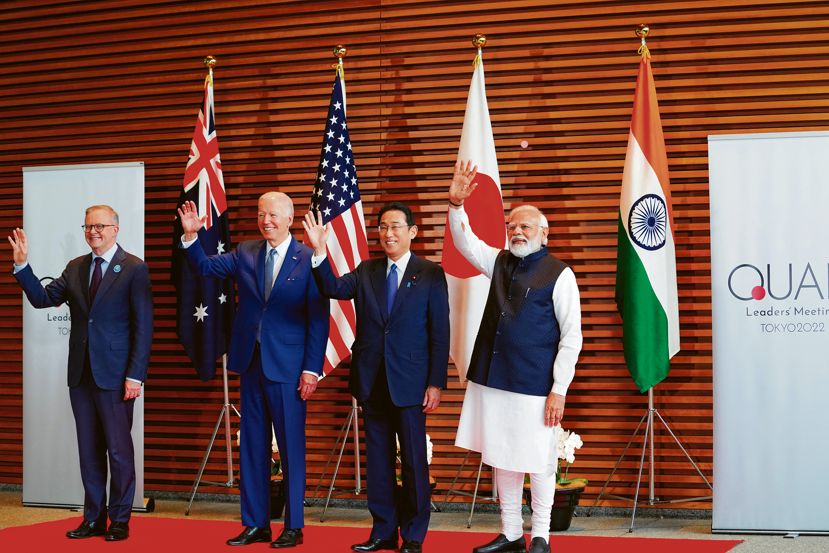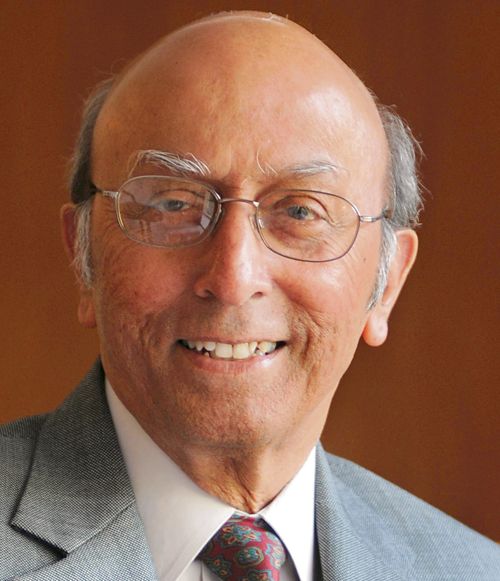
CAPACITY: With its ethos, India may well be the only country in the world which can truly be a ‘super partner’. Reuters
Tarun Das
Former Director General, CII
IN the vocabulary of geopolitics and geoeconomics, the favourite word for the strongest nations in the world, eg the USA, is that it is a ‘super power’. Meaning, it is their vast economic and military strength that gives them the title of super power. More and more, the talk is that China has emerged as a ‘super power’, the first Asian country to be so.
In discussions, public and private, there is reference to India’s ambitions and aspirations. Often, it is said that India can be a super power. India must be a super power. India should be a super power. India is on the way to being a super power. Somehow, this title for India and India’s own ethos and culture do not seem to go together.
Looking at the history of non-violence, democracy, yoga, humility and spiritual values of India, somehow the idea of India being a super power does not sit right. That is not to say that India should not be economically or militarily strong. It must be. In fact, there is a huge backlog to make up because of past policies being less than adequate. But, there is a difference between being strong and being a super power.
Super power, somehow, gives the impression of a country which uses its strength to influence and, may be, pressure others. Super power gives the feeling of a country wanting to dominate over the others. Super power is not a description used for a friend. Super power is one to be feared.
The following are some principal characteristics which India follows in its international relationships that make it suitable for being a super partner:
First, to belong to no single bloc but build strong relationships across the world, the developing and the developed. This policy is being actively followed, especially in recent years.
Second, to participate in different groupings of countries, such as BRICS, ASEAN, BIMSTEC, SCO, G-20 (of which India is the President for 2023) and Quad.
Third, to participate in the affairs of the UN and its various wings, such as the WTO, WHO, UNIDO, UNDP, UNESCO, UNICEF and FAO, with vigour and energy. For example, recently, India played an active role in the UN Security Council during its term as member.
Fourth, to build deep and abiding relationships with all friendly countries. Multiple initiatives have been taken in recent years to achieve a new level of collaboration.
Fifth, to share knowledge and experience in building a digital economy which has transformed India and can transform many developing countries.
Sixth, to collaborate in healthcare, including vaccines during the Covid-19 period and its aftermath. Health has become a major, new area of bilateral cooperation, with India in a position to share and transfer knowledge as well as products and services.
Seventh, to explore every possible way to help the least developed countries to build capacity of all kinds — physical, human resources, technology, etc.
Eighth, to have a special focus on people development because their ability to do what is required in their own countries is crucial to their own development. Professionalisation of people through education and training is the most important partnership.
Ninth, having benefited from the development of entrepreneurship and startups, India is able to pass on the learnings to others so that their own industrial and economic development is enhanced.
Tenth, concurrently, to share policy formulation experience which would enable friendly countries to avoid the mistakes that India made. This includes the management of deregulation and liberalisation.
Eleventh, and perhaps the most significant ‘soft’ partnership, is to build people-to-people relationships. Students, scientists, women, youth, administrators and the like, who connect with their counterparts elsewhere, build bonds of a quality and depth not possible without a face-to-face connection.
All of this makes India, potentially, a ‘super partner’ rather than a ‘super power’. And a super partner builds goodwill and trust, deep relationships and a ‘super structure’ which is enduring and equal in nature.
The realisation to be a ‘super partner’ is not far because India is already doing many of the things listed earlier. There can be no end to the work, the process. It will always be ongoing, but the direction is set to strengthen partnerships across continents, countries, and the world.
It would be good for all if Indians dropped the super power status as a aim for India, with all its negative connotations, and adopted the ‘super partner’ terminology and the true spirit of being the best possible partner to all friendly countries.
In this world where finance and technology flows are relatively free, and, perhaps, people movement will one day follow suit, no country can be an island, isolated from the world. Every country needs friends and India’s way of building partnerships is the right way to go about it.
And, those countries which function on the ideology that they can do everything on their own or that they do not need friends are likely to come to grief one day, sooner or later.
One very important aspect of being a solid ‘super partner’ is to have the capacity and capability, built domestically, to fulfil the 11, or more, roles enumerated above. India, therefore, has to continuously work and strive to enhance its own social and economic infrastructure to be an ideal partner.
Today, and tomorrow, India may well be the only country in the world which can truly be a ‘super partner’, subject to building up its own capacity.
Join Whatsapp Channel of The Tribune for latest updates.




























